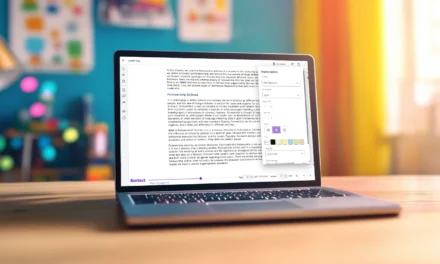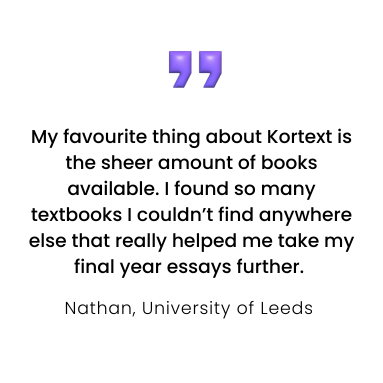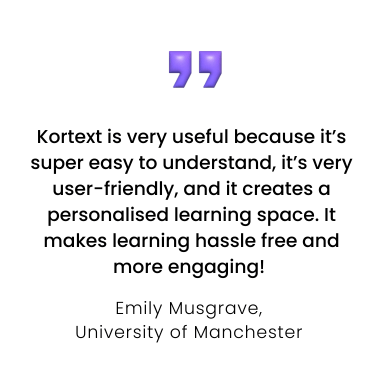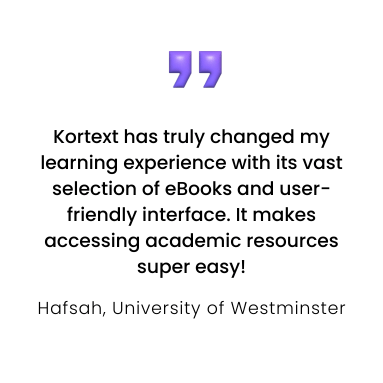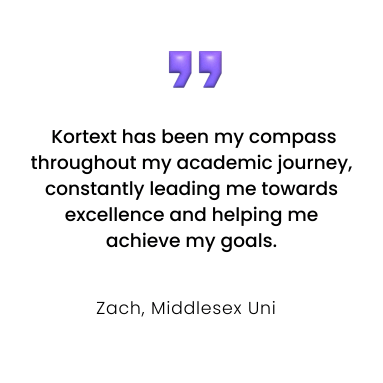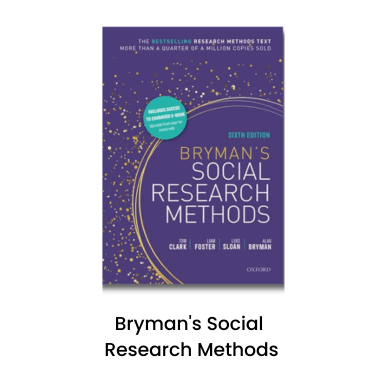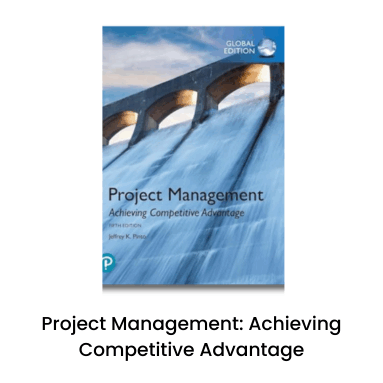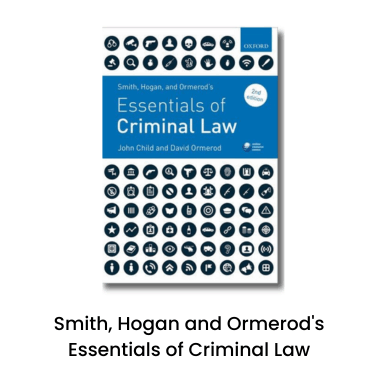The idea of doing a resit for an exam was my second worst nightmare, with the first one being the possibility of failing the whole course.
When I found out I had failed an exam and I had to redo it in order to proceed into my third year of studies, I panicked. However, I couldn’t risk failing. I needed to look back at my revision strategies and all the work I’d put into my studies, just be honest with myself and admit that my revision methods weren’t as effective as I believed they were.
It took some time for me to realise this situation was none other than a wake-up call. I took it as a sign that I needed better ways to prepare for my exams if I wanted to do well.
Was it possible that my inefficient note-taking and constant re-reading habits weren’t effective enough study methods for me to achieve the grades I wanted?
Discovering Kortext
After accepting my fate that my summer wouldn’t be completely revision-free, I decided to take a more positive approach. I promised myself that I would do better. It was that stage I was introduced to Kortext.
I have always been aware that Kortext is a very useful app when it comes to accessing textbooks, but I didn’t make it an active tool in my revision before. However, after the disappointing news, I had to try something more effective than my original approach and I’m so glad I did.

Active Recall & Spaced Repetition
During my research about what are the most effective learning methods out there, I came across ‘active recall’.
Active recall is a learning method where you constantly test yourself on the content of your chosen subject by creating questions that you have to answer. This gives you the opportunity to highlight what questions you were struggling to answer and go back to those until you can apply your knowledge without mistakes.
‘But how do I remember?’, you may ask. Well, this is when spaced repetition as a method for effective memorisation comes into play.
According to the theory behind spaced repetition, the best way to register information in our long-term memory is to continue revisiting the subject we wish to remember, disrupting something called ‘Ebbinghaus’ Forgetting Curve’.
Information we learn is the easiest to recall straight after learning about it. However, we are less and less able to recall this information over time.
The more we recall information over longer and longer periods of time, the more likely we are to remember. I combined this theory with the use of active recall and Kortext to create the perfect revision strategy to ace my resit exam.

How Kortext turned things around
I came to the realisation that in order to be able to register information in my long-term memory, I had to understand what I was studying in the first place.
Kortext is amazing when it comes to accessibility. I was lucky enough to have it downloaded as an app on my iPad, meaning that I could access content remotely, being able to highlight anything I found to be important for my exam.
Because Kortext allows you to choose different colours to highlight text with, I was able to colour-code the content based on how much I understood the topic.
Using the “Create Note” tool, I was further able to leave comments to myself for future reference, meaning that when I looked back at the content during spaced repetition, I would have reminders about what I struggled to memorise last time to be able to test myself more effectively.
The easiest way to take notes while practising active recall is to write questions, and Kortext allows you to use your iPad’s split screen function, meaning that you can open the Notes app next to it.
This made it easier for me to read the content and type the questions for myself right next to it. If I needed to remember a specific thing, but could only recall keywords, I could always just search words using the search option and type in what I could remember.
The app would automatically show me all the pages where the word appears throughout the book, giving me the chance to gather all the information about it.
Kortext also allows you to listen to your content over and over again. The read aloud function has been excellent when I felt like my thoughts were muddled and needed to hear the information instead of just reading over it.
All’s well that ends well
After a whole summer of perfecting my knowledge and my revision method, I felt confident the day my exam came. I was still a little anxious because I knew how important it was for me to do well on this exam, not only because I didn’t want to fail, but also because of how much I loved the new strategy I had developed over the summer.
I was grateful for the opportunity to redo my exam, not only because I ended up getting an amazing grade, but because my preparation involved learning so much about revision methods and Kortext, gaining beneficial knowledge that I will use for the rest of my life. I am grateful that I am able to share my story with you, and I hope you will find it just as useful and beneficial as I did.
Wishing you success in your exams,
Lilian
This blog has been written by Lilian, Kortext Student Ambassador at the University of Essex and reviewed by our team. If your university library has partnered with us, you can log in to your Kortext account here.


